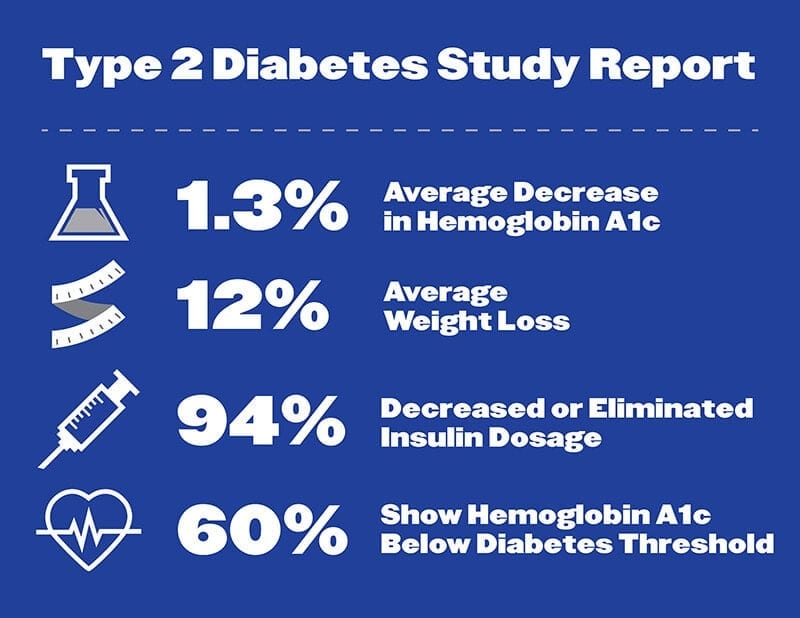The Ketogenic Diet, Insulin & Weight Loss
Have you tried the ketogenic diet yet? It’s been the latest trend in the last few years. But more importantly, it’s helped a lot of our patients (in the 40+ years category) to lose stubborn weight, reduce or remove medications, and feel great again! We decided to dive into the research to help solidify the benefits of the ketogenic diet, why it makes sense and is sustainable long-term.
Who does the ketogenic diet benefit?
The ketogenic diet can benefit anyone who is:
- Overweight
- Insulin-resistant
- a type 2 diabetic
- On multiple medications and their doctor has said they need to lose weight
- Has other health issues such as hypertension, elevated cholesterol, poor mental focus, low energy, etc.
About 90 % of people with diabetes have type 2 diabetes. The good news is you can prevent, postpone, and reverse type 2 diabetes with healthy dietary changes. An important truth here is that type 2 diabetes is a modifiable disease. If you start early and change your habits, you can change the disease. About 14% of Canadians have type 2 diabetes. However, another 25-35% have insulin resistance1, metabolic syndrome or “pre-diabetes,” and they don’t even know it. Canadians are not that far behind the United States where over 50% of Americans now have diabetes.
What is the ketogenic diet?
In a nutshell, the ketogenic diet is a very low carbohydrate diet with adequate protein and high fat. While this may sound difficult for some, it’s proven quite successful. It has the best research outcomes and it has one of the highest rates of compliance long-term. People feel good, have lots of energy, lose weight; and this motivates them to keep it up.
Specifically, the ketogenic diet comprises of the following ratios:
- Low carbohydrate –– this is usually under 50 grams (often less than 30 grams) of total carbs.
- Adequate Protein –– generally 1.5 kg/gm of ideal body weight (this is not a high protein diet as excess protein is anti-ketogenic). For example, a 170 lb person would consume 116 grams protein, as a daily minimum. A 250 lb person would consume 176 grams of protein, as a daily minimum.
- High fat –– anywhere from 55-80% of total calories, is recommended.
What is the evidence?
Is the ketogenic diet just another trend or is there science behind carbohydrate restriction? An ongoing 5-year clinical trial with Purdue University, the Indiana University of Health (and other collaborators) just published their one-year outcomes in February 2018.
Summary of clinical trial participants
- 465 patients from August 2015 to March 2016 (included 349 type 2 diabetics, the rest were pre-diabetic).
- 87 patients elected to have “usual care”.
- 262 patients elected to adopt individualized, low carbohydrate, high-fat nutrition, while connecting with a health coach and physician via a mobile application, with educational resources.
Summary of clinical trial results
One year data showed that hemoglobin A1c reduction was dramatic while simultaneously getting rid of medications.
- HbA1c reduction was fast and profound in the first 70 days and continued to drop 7.5 average to 6.2 in the intervention group.
- 57% of prescriptions were discontinued and 100% of patients discontinued sulfonylurea medications.
- 94% of participants who began the trial on insulin had insulin decreased or eliminated.2
- Two year data is not yet available, but the results will be exciting!

Summary of clinical trial benefits
Patients stayed engaged and the study boasts an 83% retention at one year, proving that this is a sustainable program. While weight loss was not the primary goal, an average of 12% loss of body weight was the common and typical side effect. Furthermore, the reduction in medication results in overall lower costs to the healthcare system and to the patient.
Findings from other studies
Another 2 studies showed that 22 of 26 cardiovascular risk factors improve on the ketogenic diet. Health parameters ranged from elevating good cholesterol HDL to lowering blood pressure and inflammatory markers.3,4 Overall, there are 20 randomized controlled trials, 5 meta-analyses, and 10 other published trials on the benefits of the ketogenic diet.
The ketogenic diet promotes non-starchy carbohydrate sources with moderate protein intake and high fat. This model enabled patients to sustain nutritional ketosis, where the body uses fat as its primary fuel source instead of glucose. Additionally, patients interacted with their health coach or physician frequently. This is what naturopathic physicians are able to offer patients in today’s healthcare system. So, if you would like to try a new dietary approach for your health, contact us to book an appointment.
*Please do not discontinue any medications without consulting a physician. All these studies involved frequent and regular physician consultations, frequent blood work, and follow-ups.
References:
- Health Facts Sheet Diabetes, 2016 https://www150.statcan.gc.ca/n1/pub/82-625-x/2017001/article/54859-eng.htm
- https://www.ncbi.nlm.nih.gov/pubmed/29417495
- Hallberg et al. Diabetes Therapy, 2018
- Bhanpuri et al. Cardiovascular Diabetology, 2018

